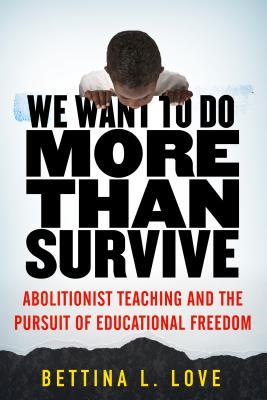
The best higher education books of 2022
The Journalism Lab for Higher Education has selected the best 10 higher education books this year.
The Journalism Lab for Higher Education has created a list of the best ten books in higher education of 2022.


1. Breaking Ranks: How the Rankings Industry Rules Higher Education and What to Do about it by Colin Diver.
As a former university administrator who refused to play the game, Colin Diver leads his readers on an engaging journey through the mysteries of college rankings, admissions, financial aid, spending policies, and academic practices. He explains how most dominant college rankings perpetuate views of higher education as a purely consumer good susceptible to unidimensional measures of brand value and prestige. Many rankings, he asserts, also undermine the moral authority of higher education by encouraging various forms of distorted behavior, misrepresentation, and outright cheating by ranked institutions.
Explaining what is most useful and important in evaluating colleges, Diver offers both college applicants and educators a guide to pursuing their highest academic goals, freed from the siren song of the "best-college" illusion. Ultimately, he reveals how to break ranks with a rankings industry that misleads its consumers, undermines academic values, and perpetuates social inequality.

2. The Complete Guide to Contract Cheating in Higher Education by Dave Tomar.
This text constitutes the single most comprehensive source on contract cheating in higher education yet compiled. Drawn from the author's decade of experience as an academic ghostwriter, and a subsequent decade spent bringing greater attention to cheating in higher education, The Complete Guide to Contract Cheating in Higher Education provides an invaluable resource to educators who seek to better understand how and why their students cheat and what can be done about it.
Part confessional, part exposé, this is a must-read for anyone who wants to learn the ins-and-outs of ghostwriting, the reasons why students cheat and how the problem should be understood and best addressed.

3. Leadership Matters: Confronting the Hard Choices Facing Higher Education by W. Joseph King and Brian C. Mitchell, authors of How To Run a College.
During these unprecedented times, glaring internal inefficiencies, communication breakdowns, and an overriding sense of cultural inertia on many campuses are too often set against a backdrop of changing consumer preferences, high sticker prices, declining demand, massive tuition discounting, aging infrastructure, technological and pedagogical alternatives, and political pressure. Strategic leadership in such a complex environment needs to be exercised in nuanced ways that differ from those embraced by corporate cultures.
In Leadership Matters, W. Joseph King and Brian C. Mitchell argue that the success of higher education institutions depends on strategic leaders who can utilize the strengths of their institutions and leaders to balance internal pressures, shifting demographics, global education needs, and workforce preparation demands beyond the college gates. Drawing on their extensive experience, the authors guide senior administration, trustees, and presidents on how to lead during immense financial, demographic, and social challenges. King and Mitchell believe that, to survive, colleges must be well run―flexible, effective, and forward thinking.

4. The Call of the Wild and Free: Reclaiming the Wonder in Your Child’s Education, A New Way to Homeschool by Ainsley Arment
Inspired by the spirit of Henry David Thoreau— “All good things are wild and free”—mother of five Ainsley Arment founded Wild + Free, The Call of the Wild and Free is a practical guide that provides all the information, inspiration, and advice you need for creating a modern, quality homeschool education.
The book offers advice, information, and positive encouragement for parents considering homeschooling, those currently in the trenches looking for inspiration, as well as parents, educators, and caregivers who want supplementary resources to enhance their kids’ traditional education.

5. The Secret Syllabus: A Guide to the Unwritten Rules of College Success by Jay Phelan and Terry Burnham
The Secret Syllabus equips students with the tools they need to succeed, revealing the unwritten rules and cultural norms and expectations not included in the official curriculum.
Jay Phelan and Terry Burnham share the essential lessons they have learned from struggling, unfocused students as well as award-winning college instructors and researchers. Weaving engaging storytelling with practical, actionable advice, Phelan and Burnham illustrate both productive and counterproductive approaches to achieving academic excellence, and highlight the importance of setting and attaining goals, nurturing strong relationships, developing resiliency, and more.
This fresh, funny, and boldly innovative book enables students to develop the consistently winning and effective behaviors that will equip them to thrive on campus and beyond.

6. We Want to Do More Than Survive: Abolitionist Teaching and the Pursuit of Educational Freedom by Bettina Love
Drawing on her life’s work of teaching and researching in urban schools, Bettina Love persuasively argues that educators must teach students about racial violence, oppression, and how to make sustainable change in their communities through radical civic initiatives and movements. She argues that the US educational system is maintained by and profits from the suffering of children of color. Instead of trying to repair a flawed system, educational reformers offer survival tactics in the forms of test-taking skills, acronyms, grit labs, and character education, which Love calls the educational survival complex.
Following in the tradition of activists like Ella Baker, Bayard Rustin, and Fannie Lou Hamer, We Want to Do More Than Survive introduces an alternative to traditional modes of educational reform and expands our ideas of civic engagement and intersectional justice.

7. Learning with Others: Collaboration as a Pathway to College Student Success by Clifton Conrad and Todd Lundberg
How can colleges and universities engage students in ways that prepare them to solve problems in our rapidly changing world?
Drawing on a three-year study of student persistence and learning at Minority-Serving Institutions, Clifton Conrad and Todd Lundberg argue that student success in college should be redefined by focusing on the importance of collaborative learning over individual achievement. Engaging students in shared, real-world problem-solving, Conrad and Lundberg assert, will encourage them to embrace interdependence and to value and draw on diverse perspectives. Learning with Others presents a set of core practices to empower students to enter, nourish, and sustain collaborative learning and outlines how to blend the roles and responsibilities of faculty, staff, and students; how to adopt best practices for receiving and giving feedback on problem-solving; and how to anchor a curriculum in shared problem-solving.
Bringing together lessons learned from more than 300 interviews, along with notes from 14 campus visits, 3 national convenings, and examples from across colleges and universities in the nation, Conrad and Lundberg explore ways in which successful antiracist networks of problem-solvers are learning to contribute to the flourishing of their communities on campus and far beyond. Outlining strategies for identifying and dismantling barriers to participation, Learning with Others will pique interest among faculty, students, and administrators in higher education and a wide range of external stakeholders—from families and communities to policymakers and funders.
RELATED CONTENT

8. The Tuskegee Student Uprising: A History by Brian Jones
The untold story of a dynamic student movement on one of the nation’s most important historically Black campuses
The Tuskegee Institute, one of the nation’s most important historically Black colleges, is primarily known for its World War II pilot training program, a fateful syphilis experiment, and the work of its founder, Booker T. Washington. In The Tuskegee Student Uprising, Brian Jones explores an important yet understudied aspect of the campus’s history: its radical student activism.
Drawing upon years of archival research and interviews with former students, professors, and administrators, Brian Jones provides an in-depth account of one of the most dynamic student movements in United States history. The book takes the reader through Tuskegee students’ process of transformation and intellectual awakening as they stepped off campus to make unique contributions to southern movements for democracy and civil rights in the 1960s. A compelling work of scholarship, The Tuskegee Student Uprising is a must-read for anyone interested in student activism and the Black freedom movement.

9. It’s Not Free Speech by Michael Bérubé and Jennifer Ruth
The protests of summer 2020, which were ignited by the murder of George Floyd, led to long-overdue reassessments of the legacy of racism and white supremacy in both American academe and cultural life more generally. But while universities have been willing to rename some buildings and schools or grapple with their role in the slave trade, no one has yet asked the most uncomfortable question: Does academic freedom extend to racist professors?
It's Not Free Speech considers the ideal of academic freedom in the wake of the activism inspired by outrageous police brutality, white supremacy, and the #MeToo movement. Arguing that academic freedom must be rigorously distinguished from freedom of speech, Michael Bérubé and Jennifer Ruth take aim at explicit defenses of colonialism and theories of white supremacy—theories that have no intellectual legitimacy whatsoever. Approaching this question from two angles—one, the question of when a professor's intramural or extramural speech calls into question his or her fitness to serve, and two, the question of how to manage the simmering tension between the academic freedom of faculty and the anti-discrimination initiatives of campus offices of diversity, equity, and inclusion—they argue that the democracy-destroying potential of social media makes it very difficult to uphold the traditional liberal view that the best remedy for hate speech is more speech.
This book will resonate for anyone who has followed debates over #MeToo, Black Lives Matter, Critical Race Theory, and "cancel culture"; more specifically, it should have a major impact on many facets of academic life, from the classroom to faculty senates to the office of the general counsel.

10. After The Ivory Towers Falls: How College Broke the American Dream and Blew Up Our Politics—And How To Fix It by Will Bunch
In After the Ivory Tower Falls, award-winning journalist Will Bunch embarks on a deeply reported journey to the heart of the American Dream. That journey begins in Gambier, Ohio, home to affluent, liberal Kenyon College, a tiny speck of Democratic blue amidst the vast red swath of white, post-industrial, rural midwestern America. To understand “the college question,” there is no better entry point than Gambier, where a world-class institution caters to elite students amidst a sea of economic despair.
From there, Bunch traces the history of college in the U.S., from the landmark GI Bill through the culture wars of the 60’s and 70’s, which found their start on college campuses. We see how resentment of college-educated elites morphed into a rejection of knowledge itself—and how the explosion in student loan debt fueled major social movements like Occupy Wall Street. Bunch then takes a question we need to ask all over again—what, and who is college even for?—and pushes it into the 21st century by proposing a new model that works for all Americans.
The sum total is a stunning work of journalism, one that lays bare the root of our political, cultural, and economic division—and charts a path forward for America.











LEAVE A COMMENT:
Join the discussion! Leave a comment.